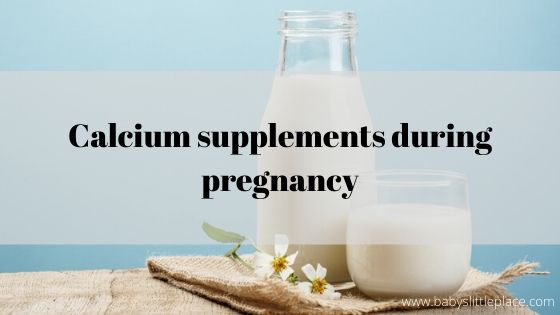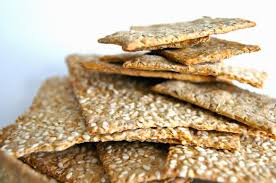
Calcium supplements during pregnancy
Calcium is one of the most important minerals in the human body. As much as 99%, it is in the form of calcium phosphate salts in bones and teeth, giving them strength and the structure. The remaining calcium is found in the nervous system, muscles, heart, blood, and extracellular fluid, where it’s needed for many body functions.
Calcium is very important during pregnancy! But how much calcium do you really need? Can you cover your daily needs only with the proper nutrition?
Yes, you can! But you should know that during pregnancy, absorption of calcium in the body increases, so be sure you meet the required daily needs!

Although taking calcium supplements during pregnancy is very common, it is better to consume a sufficient amount of calcium with balanced and healthy nutrition.
Should I take calcium supplements or consume food rich in calcium?
Eat foods rich in calcium, such as milk, yogurt, and cheeses all day. Of course in moderate amounts! It is important to know that regardless of whether you are consuming dairy products with more or less fat, the amount of calcium in the food remains the same.
Pregnant women who do not consume dairy products have other options as well. Calcium obtained from vegetables is better absorbed into the body as calcium from cow’s milk. That is good news, as the amount of calcium is, unfortunately, lower as in the milk.
You can cover the calcium requirements by consuming tofu, soya milk, smoked salmon, figs, sesame, and green leafy vegetables such as broccoli or kale.
To help you ingest the right amount of calcium per day, we made the table below, which shows the orientation values of calcium in individual foods.
Importance of calcium during pregnancy
- baby’s bones and teeth development
- healthy bones and teeth of pregnant women
- sufficient amount of calcium in pregnancy reduce the risk of premature birth
- reduces the risk of lower birth weight
- some studies have shown that calcium in pregnancy help to reduce the risk of preeclampsia
How much calcium does the pregnant woman need?
Calcium has a significant role during your pregnancy. It is a primary mineral for building a fetus’s strong bones and teeth!
The baby’s needs for calcium increase in the last ten weeks of pregnancy. Experts advise pregnant women should double the intake of calcium during this period.
Baby’s Little Place tip: Nutrition with sufficient calcium is indispensable to the breastfeeding mother as well. Calcium deficiency can lead to osteoporosis in her later life!
During pregnancy and breastfeeding, calcium needs increase on about 1200 mg of calcium per day or about 1500 mg for pregnant women who carry twins. That means you need approximately four calcium-enriched meals during the day.
Consuming the recommended amount of calcium per day can increase the number of all minerals in the baby’s bones by about 15 percent. Further, it is important to aware that the excess calcium does not have a higher effect on the baby’s or your health, so you don’t need to exaggerate with the intake.
Baby’s Little Place tip: Don’t exaggerate with calcium intake, as your body can’t absorb large amounts of calcium at once.
Orientation values of calcium in foods, safe for pregnant women
| FOOD | CALCIUM (mg/ 100 g) |
| Sesame seeds | 975 |
| Sardines | 379 |
| Almonds | 252 |
| Soya | 195 |
| Brazil nuts | 132 |
| Eggs | 120 |
| Whole milk | 120 |
| Chard | 103 |
| Curd | 95 |
| Spinach | 80 |
| Dried apricots | 82 |
| Kale | 64 |
| Broccoli | 58 |
| Figs | 54 |
| Salmon | 16 |
Calcium deficiency in pregnancy
What will happen if you do not intake enough calcium? If the pregnant woman doesn’t intake sufficient amounts of calcium, the body will compensate for the deficiency by taking the calcium from her bones. Over time, this deficiency can weaken the bones and lead to osteoporosis.
So, your unborn baby will get the needed calcium from your bones, but you need to watch for your health too! You don’t want to develop osteoporosis when you get older!
Baby’s Little Place tip: Apart from calcium, for proper bone development, your baby needs enough magnesium as well.
The main source of magnesium are grains, grain products, and green leafy vegetables.
Calcium supplements during pregnancy
If pregnant women don’t meet daily calcium requirements, experts advise taking supplements, especially in the second and third trimesters. If you decide to do so, consult with your obstetrician/gynecologist first!
Tips regarding calcium supplements during pregnancy:
- Choose a calcium supplement that contains 150 to 200 milligrams of calcium. The best supplement is calcium carbonate, as the body absorbs it the most.
- Your body will absorb the most calcium from the supplement if you take it during the meal.
- For better absorption, try to consume calcium supplements in parts, throughout the entire day.
- If you are taking antacids, your dosage of calcium supplements needs to be adjusted. Antacids already contain calcium!
- Consult with your doctor, if you have suffered from kidney stones, before taking calcium supplements!
- In case you are low on iron, phosphorus, zinc, and/or magnesium, consult with your health care provider before taking calcium supplements. Calcium supplements can inhibit the absorption of these minerals.
Baby’s Little Place tip: You can check the quality of your supplement with a little experiment. Put it in a glass of vinegar and monitor the time of dissolving. If the calcium pill doesn’t dissolve within ten minutes, you should choose another product.
